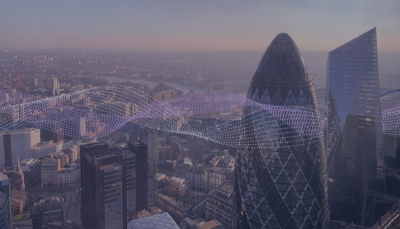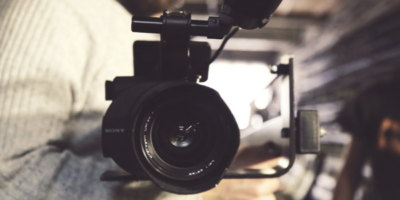Media Training Services
Media Training Agency for Executives and Spokespersons
A media interview is not a conversation – it is a presentation. Yet this is often ignored by even the most accomplished business leaders. Sapience can help executives and spokespersons prepare for interviews with the media and build their confidence for all the types of public appearances.
Master the art of the media interview
Sapience Communications trains leaders and spokespeople in how to master the art of the media interview. Through working with you to agree your messaging, and teaching you the techniques that allow you to grow in confidence and competence, we can better prepare you for even the most forensic media grilling.
Sapience is the right media training agency
Sapience Communications team members – a number of whom have worked as journalists themselves – have decades of experience in training, coaching and preparing corporate leaders in how to handle media interviews, press conferences and other set-piece public speaking engagements (including appearing before Parliamentary committees). We have worked with clients at all levels within an organisation, from nervous new recruits to strong-minded members of the C-suite.
We tailor our training to not only the organisation and individual concerned, but also to the brand, reputation and messaging that needs to be protected and conveyed.
Our approach is to ensure that messaging and delivery is fine-tuned to resonate with the people who are reading, listening to or watching your media interview, not simply the journalist conducting it. We will put you through your paces, building your confidence in all the types of interviews you might face.


Working across industries
We are able to provide expert media training services across multiple industries, encompassing property, beauty, renewables, education, healthcare, financial services, and construction.
Public perception is everything
Attitude, preparation, and message
Media Training is about being as prepared as possible for a media interview so that you can convey appropriate messages, even in the face of unexpected or hostile questioning.
Effective media training involves realistic simulations of the type of interviews that you are likely to face. But it is not about scaring you. Instead, a good media training agency should demystify all aspects of the different formats of media interviews, and build your confidence to welcome them in the future.
Media training is also rooted in messaging. Even the most polished performer will fail to connect with the audience if they deliver the wrong message, which is why our media trainers evaluate your messaging and advise on improvements, as well as teaching you how to reframe your remarks to suit the specific audience of each and every interview.
Small groups & hands-on approach
As media training experts, Sapience delivers either a full or a half day training session beginning with a theoretical overview of how to approach interactions with the media, before going on to simulated interviews.
Our team has decades of experience in offering media training services across sectors, and has successfully worked with clients including Olympia London, L&G and UCB.
We typically train our clients in groups no larger than three people, so that you get one-on-coaching and the time and space to ask for and receive individual feedback. Our training sessions involve the playback of recorded interviews, which are analysed and critiqued constructively, with you being provided with the recordings for you to take home and keep.
What will you learn
A media interview requires preparation that is too-often overlooked. Our aim is to make you ready, willing and able to take part in a real media interview as soon as your training is complete.
Sapience will offer support to ensure that you are confident and clear on your objectives.
Most common media training services
- Messaging review and refresh
- Advice on body language and posture
- Understanding what the media wants
- How to handle a telephone interview
- How to conduct a print media interview
- How to succeed at broadcast interviews (in all formats)
- Refresher media training shortly before a big set piece interview
- How to handle being door-stepped by the media
Contact us
We’d be delighted to hear from you.
Frequently asked questions
Why should you work with Sapience?
We are media training specialists, having prepared spokespeople for organisations of all sizes, across all industries (both public and private sector), empowering them to get the most out of interviews.
How is pricing determined?
We price transparently based on the number of participants in a media training session, over either a full day or half day.
What is the difference between media training and presentation training?
They are complimentary. Many of the techniques you learn in media training are applicable when delivering presentations. But simply being good at presentations does not adequately prepare for you for the full range of scenarios that can emerge in a media interview.
How do you prepare for a media interview?
The same way you get to Carnegie Hall – practice. Even the best media performers will have anticipated the questions they are likely to be asked, learnt their key messages and rehearsed the interview in advance.
What are some examples of good and bad media interviews?
Perhaps unfairly, a very good media interview often does not attract the amount of attention that a bad interview does. People remember bad interviews, but they could very often have been avoided with adequate preparation.
The differences between good and bad interviews may rest on a number of details, although in general is fairly easy to understand when one didn’t go as planned, especially in terms of managing the reputation of an organisation. For example, when an executive fails to demonstrate or reassure the media during an interview that his organisation took the necessary precautions to prevent a seriously negative outcome for the stakeholders ranging from shareholders to clients and to the general public, chances are that that interview will further contribute to the original issue rather than alleviate the situation.
Who needs media training?
Any individual that may be called upon to take part in a media interview. This is often the case with executives and decision-makers, but sometimes organisations may wish to provide media training to entire departments for a number of reasons, like maintaining an organisation’s good reputation or tackle a public image crisis.
Can a bad media interview have operational or financial consequences?
Although it can’t be predicted in advance, a bad media interview can absolutely undermine the confidence of investors, regulators, customers and a whole host of other stakeholders.
Make an enquiry
If you are looking to enhance your corporate comms and digital marketing efforts with engaging,
relevant content, please get in touch for a free, confidential discussion.
You are in excellent company






